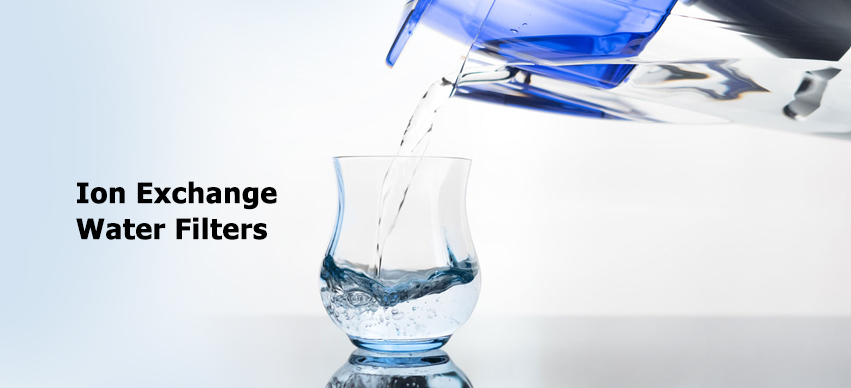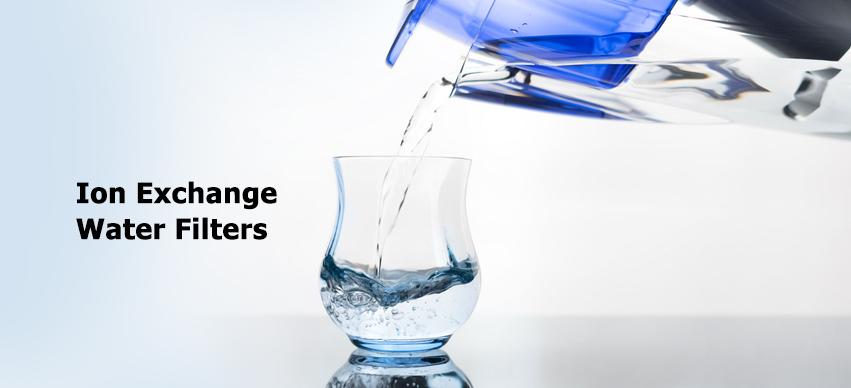Microplastics in Humans: Understanding the Risks and How to ..
8 Min Read


While everyone is looking for ways to improve their health this New Year, they don’t know that by simply increasing their water intake they are benefitting their body to a great extent. Drinking water daily is mandatory. However, when it comes to drinking water, you have to ensure that you are consuming healthy, lead-free, and treated water. In most homes, filtration systems are installed that ensure the water they are getting is clean and healthy for ingesting. Since we are living in a polluted world, no one can guarantee that whatever we are eating and drinking is 100% free of pollutants and other harmful chemicals.
When it comes to water filtration, you cannot only rely on carbon-based systems, as they can’t get rid of germs and other microorganisms.
This is the reason why the majority of homeowners are switching to ion exchange water filters.
In this post, we will discuss everything about ion exchange water filters and how they can benefit your health. Let’s get started.
Water filters are designed to eliminate unwanted impurities from water, such as bacteria, hardness, odor and taste, and sediments to result in better quality water. There are many different types of water filters available but recently, the norm of installing ion exchange water filters is households have become a norm.
Ion exchange water filters prominently used in areas where the hardness level of water is extremely high. We all know that hard water is the enemy of our health. Consuming hard water can lead to several health problems, especially kidney stones, stones in the gall bladder, urinary tract infections, and other anomalies. Moreover, it can make your coffee taste dull, chalky, and heavy. On the other hand, hard water can damage your equipment like a coffee machine among other appliances in your home.
When it comes to treating hard water, ion exchange water filters are preferred. They are not only cheap but can be regenerated and used again.
The process of ion exchange is used to soften hard water by replacing the calcium and magnesium ions found in hard water with ions like hydrogen or sodium ions. Ion exchange filtration, unlike scale inhibition, physically removes the hard minerals and reduces the limescale content, making the water suitable for ingesting.
If you are looking for ion exchange water filtration system, ZeroWater filtration system is the best, why? Check out.
The ion exchange filtration is carried out using ion-exchange resin. These small resin beads act as water softeners. Once these resin beads lose their effectiveness, they can be either recharged or completely replaced with a new one. As the filters are usually sealed, they are simply replaced.
However, in the case of calcium treatment units, they can be regenerated.
As compared to water filtration systems like RO, ion exchange water filters produce less wastewater. On average, an ion exchange water filter generates as low as 2-4% of wastewater. As compared to this, reverse osmosis (RO) filtration systems produce as much as 10-50 wastewater. The sad thing about the wastewater is that it cannot be used for any purpose other than washing clothes to some extent and washing vehicles. You cannot consume it or use it to water plants. Hence, if you live in an area where water is limited, you should opt for an ion exchange water filtration system. It is not only cost-effective but also saves a lot of water.
An ion-exchange water filter requires periodic replacement of operational components. Although the service life of each component depends on factors like the usage and process, the ion exchange resins must be replaced or regenerated every 4-10 years. However, clogging and scaling compromise the service life in ion exchange filters. Luckily, the issues can be avoided by following proper pre-treatment measures that include softening, application of antiscalant chemicals, filtration of suspended solids, and upstream coagulation.
Once the water passes through the resins, it is made to pass through activated carbon that absorbs contaminants from the water that includes organic compounds and chlorine.